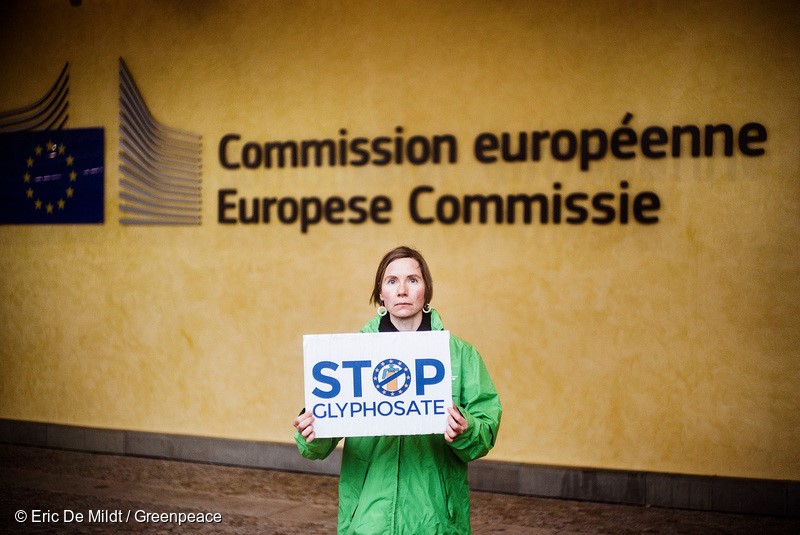Formal hearing for European Citizens’ Initiative at 3:30 pm CET today
Representatives of the #StopGlyphosate European Citizens’ Initiative will present their demands at a hearing in the European Parliament at 3:30 pm today. EU commissioner for health and food safety Vytenis Andriukaitis will present an opening and closing statement at the meeting. This hearing comes one week before the final vote by EU governments on the future of glyphosate, which follows a number of failed attempts by the Commission to renew the EU glyphosate licence, most recently for a proposed five years.
Over one million people across Europe have demanded a ban on glyphosate, more transparent and independent EU risk assessments of pesticides, and an overall reduction in pesticide use. The European Commission officially received their petition on 6 October. The European Parliament has also called for a full glyphosate ban within five years, starting with a partial ban this year.
Commenting before the hearing, Greenpeace EU food policy director Franziska Achterberg said: “Health commissioner Andriukaitis is now resorting to lame legal excuses to renew the licence for glyphosate. The EU is supposed to protect Europeans and the environment, but Andriukaitis’ main concern seems to be Monsanto’s threats of a lawsuit. Instead of cowering to corporate bullying, he should listen to independent scientists, parliamentarians and over a million Europeans calling for an immediate ban on glyphosate.”
The European Food Safety Authority (EFSA) has recognised serious environmental risks linked to glyphosate, such as high long-term risk to birds and mammals from common uses such as spraying before planting or before cereal harvesting. The European Chemicals Agency (ECHA) has classified glyphosate as “toxic to aquatic life with long lasting effects”.
Both agencies have said glyphosate is unlikely to cause cancer. However, the World Health Organisation’s cancer research agency (IARC) has classified it as a“probable” cause of cancer.
Last week EU health commissioner Andriukaitis said the EU could not phase out glyphosate as the Parliament recommended because there were “no legal grounds” and because the Commission would risk fines and being taken to court.
EU pesticide rules require that pesticides do not harm human health and “have no unacceptable effects on the environment”. It also states that any decision on the renewal or non-renewal of an active substance should take into account the scientific evaluation by EFSA, scientific uncertainties that persist (precautionary principle) and “other factors legitimate to the matter”.
For more information on the glyphosate decision-making process, please refer to this timeline.
Contacts:
Franziska Achterberg: Greenpeace EU food policy director: +32 (0)498 36 24 03, [email protected]
Greenpeace EU press desk: +32 (0)2 274 1911, [email protected]
For breaking news and comment on EU affairs: www.twitter.com/GreenpeaceEU
Greenpeace is an independent global campaigning organisation that acts to change attitudes and behaviour, to protect and conserve the environment and to promote peace. Greenpeace does not accept donations from governments, the EU, businesses or political parties.

